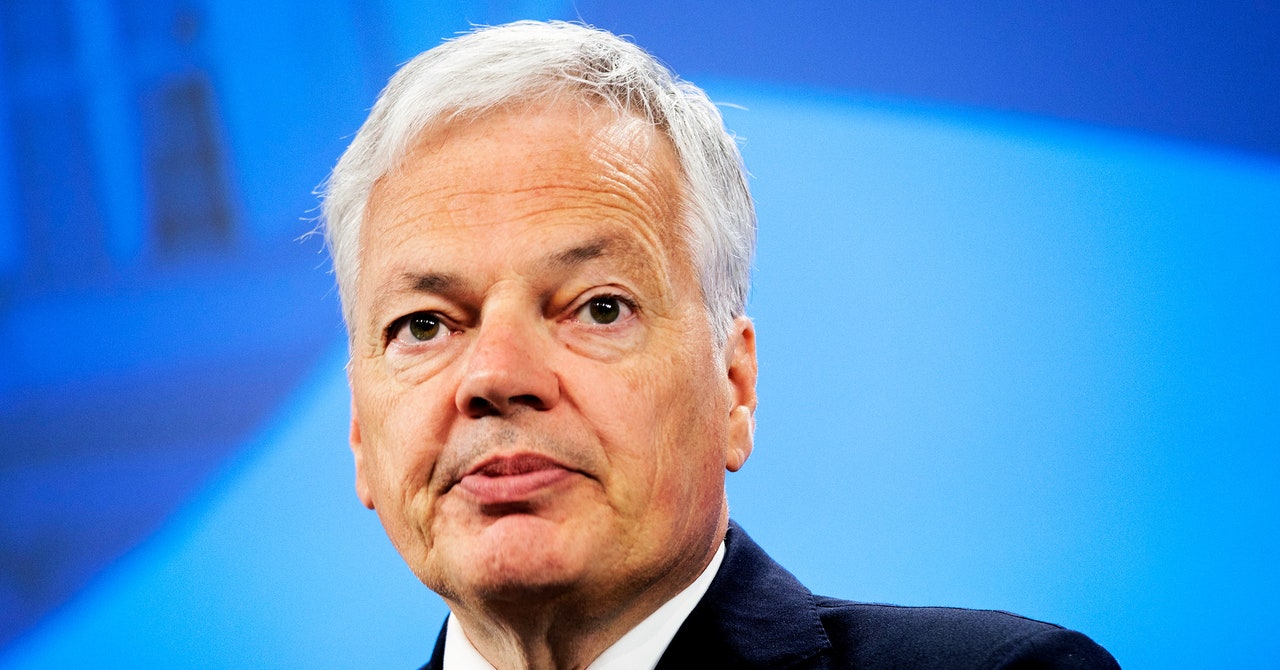The world’s most valuable and dominant internet companies are based in the US, but the country’s unproductive legislators and business-friendly courts have effectively outsourced the regulation of technology giants to the EU. That has given enormous power to Didier Reynders, the European Commissioner for Justice, who is responsible for drafting and enforcing laws that apply in the bloc of 27 countries. After nearly four years in the service, he is tired of hearing big talk from the US with little action.
Ahead of his latest round of semi-annual meetings with US officials, including Attorney General Merrick Garland in Washington, D.C., tomorrow, Reynders told WIRED why the US should finally act, where an investigation into ChatGPT is headed, and why he made controversial comments about one of the world’s most prominent privacy activists. His bicoastal tour started with a Waymo robotaxi ride through San Francisco (he gave it a rave review) and included meetings with Google and California’s privacy czar.
On the cost of inaction in the US
It’s been five years since the EU’s strict privacy law, the GDPR, came into effect, giving Europeans new rights to protect and control their data. Reynders has heard a series of proposals on how the US could follow suit, including from Meta CEO Mark Zuckerberg and other tech executives, Facebook whistleblowers, and members of Congress and federal officials. But he says there has been no “real follow-up.”
Although the US Federal Trade Commission has reached settlements with technology companies that demand careful handling of user data under penalty of fines, Reynders is cautious about their power. “I’m not saying this is nothing,” he says, but they lack the law that paves the way for more painful fines or lawsuits. “Enforcement is essential,” says Reynders. “And that’s the discussion we’re having with the US authorities.”
Now Reynders fears history repeating itself with AI regulation, leaving this powerful category of technology unchecked. Tech leaders like Sam Altman, CEO of ChatGPT developer OpenAI, say they want new safeguards, but it seems unlikely that US lawmakers will pass new laws.
“If you have a common approach in the US and the EU, we have the capacity to set up an international standard,” says Reynders. But if the EU’s upcoming AI law doesn’t align with US rules on AI, it will be harder to ask tech giants to fully comply with the rules and change the way the industry works. “If you go it alone, like with the GDPR, it takes some time and it slowly spreads to other continents,” he says. “With real action on the US side, together, it will be easier.”
About ChatGPT’s data gobbling and policy lobbying
ChatGPT is in the crosshairs of both privacy and AI-specific regulatory efforts.
OpenAI updated its privacy options and disclosures in April after Italy’s data protection authority temporarily blocked ChatGPT, but the conclusions of a full investigation into the company’s GDPR compliance are due in October, the country’s regulator says. And an EU-wide data protection task force expects common principles for all member states on how to deal with ChatGPT by the end of the year, says Reynders. All of that could force OpenAI to make further tweaks to its chatbot’s data collection and retention.
More broadly, while OpenAI’s Altman has supported calls for new rules for AI systems, he has also expressed concerns about over-regulation. In May, headlines thundered that he had threatened to withdraw services from the EU. Altman has said his comments have been taken out of context and that he wants to help shape policy.
Reynders says Altman has a significant business incentive to make amends with the EU, which has about 100 million more inhabitants than the US. “We have asked that all key actors be involved in the discussions,” says Reynders. “We want to know what their concerns are and see if we can solve them in legislation.” He emphasizes that OpenAI should not be afraid of new AI rules. “I have seen the origins of OpenAI. It’s about the same idea: developing new technologies, but for the better,” says Reynders.

